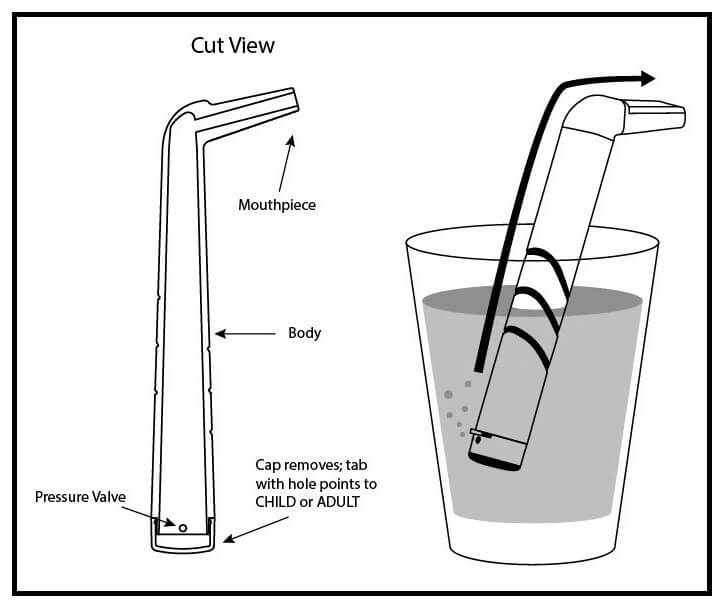Scientists have developed an instant cure for hiccups
A rigid drinking straw device provides a ‘straightforward’ cure to ‘annoying’ phenomenon

A group of scientists have invented a drinking straw device that they say will stop the hiccups in its tracks.
The “HiccAway” straw is a “forced inspiratory suction and swallow tool” that promises to interrupt hiccups and keep them at bay for several hours, according to a study.
The scientists conducting the study, from the University of Texas Health Science Centre at San Antonio, have patented the rigid L-shaped straw after research revealed that the device stopped hiccups in nearly 92 per cent of cases.
They surveyed a group 249 volunteers, with more than two-thirds who said they experienced hiccups at least once a month.
Just over 90 per cent of participants said they found the HiccAway straw more convenient than other home remedies, such as breath holding or drinking water from the far side of a glass.
The straw device works by requiring the drinker to use suction effort in order to draw water from a cup into the mouth. An inlet valve in the device forces the user to use more effort to suction the water, which causes the phrenic nerve to trigger a contraction of the diaphragm.

The subsequent act of swallowing the water activates the vagus nerve. Because both the phrenic nerve and vagus nerve are responsible for the hiccups, the scientists say that stimulating them stops them from causing the hiccups.
Hiccups occur when the diaphragm and intercostal muscles contract suddenly, producing a ‘hic” sound when the sharp intake of air causes the opening between the vocal folds to shut. The phenomenon is usually temporary, but some cases have been known to last for hours or days.
Dr Ali Seifi, associate professor of neurosurgery at the university and co-author of the study, said: “Hiccups are occasionally annoying for some people, but for others they significantly impact quality of life.
“This includes many patients with brain and stroke injury, and cancer patients. We had a couple of cancer patients in this study. Some chemotherapies cause hiccups.”
The low-cost HiccAway device is being marketed by a Colorado company under a license agreement with the university and has been accepted by a major supermarket chain to be sold on its shelves, he added. It would retail for US$14 (£10).
However, the study’s limitations include the absence of a control group and the subjective nature of the scoring system used by participants to rank their experience with the HiccAway device.
The study was published on the JAMA Network Open. Researchers said future studies will be needed to assess its efficacy in randomised clinical trials.
Join our commenting forum
Join thought-provoking conversations, follow other Independent readers and see their replies
Comments
Bookmark popover
Removed from bookmarks